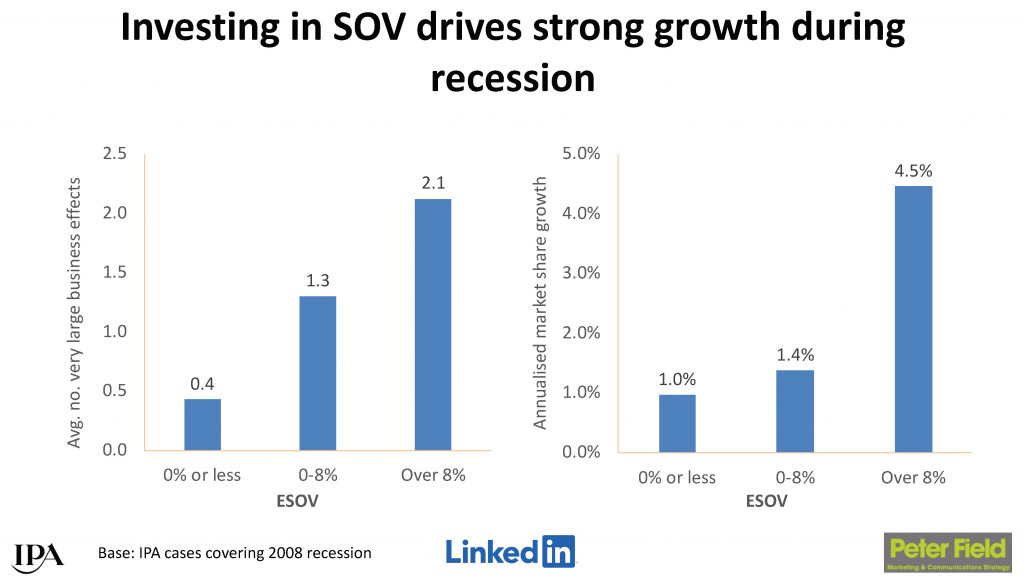How our AI business grew by 150% during a pandemic

5 key business lessons we learned from the 2020 roller coaster that helped us test, re-strategise and pivot our company.
In June of 2020, EBI.AI made the transition to working 100% virtually on a permanent basis. We’re not alone, with headlines hailing “the end of the commute as we know it” and Dettol’s bizarre 1990s view of ‘back to work’ ad going viral on Twitter for all the wrong reasons.
Noooooooo there’s another one WHYYYYYYYYYYYY pic.twitter.com/ZGpiCXkzU3
— Megan Townsend (@mmtowns) September 3, 2020
Yet, as the dust is beginning to settle on our new post-lockdown normality, the EBI.AI team continues to work at above average pre-Covid capacity. We have grown our monthly recurring revenue by 150% and our tech and marketing teams are growing rapidly.
How did we do it? I could give you the short answer, technology and great people; however, as the sage old quote goes “adapt or die”. As a tech company during a recession, we’ve been pushed to test, learn and pivot towards a more flexible working structure that increases the value that we can offer our clients, allowing us to grow.
5 key business lessons we’ve learned from this pandemic-recession
1. The real CX leaders work smart, not hard
Scenario: As a customer at a time like this, there’s nothing worse than sitting at home all day listening to music on hold to have to repeat the same answers to the same questions from another contact centre agent. For companies, there’s nothing worse than having to scramble to organise your contact centre staff to work from home, manage absences and an increase in calls from frustrated customers.
Lesson: Technology is a vital team asset. As an artificial intelligence company focused on customer experience, we’ve seen that the companies who thrive are those that have used tech to help empower their teams.
For example: At the onset of the pandemic, our client Legal & General Insurance scaled their AI assistant SmartHelp to help answer more customer queries instantly and direct more challenging queries to the appropriate contact agent. Now at least 11% of Legal & General customers use SmartHelp on the available web pages, on some pages as high as 40%, helping to reduce the volume of repetitive and costly FAQs directed at their contact centre. If you want to learn more about how we did this, you can read the case study here.
What we did: The pandemic enhanced the value of AI for our clients and made them appreciate how AI could take the heat off their customer service teams and provide better CX. This inspired our team to put together a free Coronavirus chatbot to help other companies achieve the same results and recognise the value of our product.
Recognising that budgets previously dedicated to digital transformation were being directed towards survival, our Coronabot was a lifeline to help companies endure the storm and help re-evaluate how to adapt to their customer service during a pandemic.
2. Invest and accelerate your share of voice
It’s no hidden secret that recessions can provide a lucrative opportunity for marketers to grow their company’s long-term market share. A great explanation of this is Marketing Professor Mark Ritson’s webinar on Marketing during the Coronavirus pandemic (nicely summed up here.) A simple explanation is that during a recession, some of your competitors will reduce their budget dedicated to Marketing and advertising. In return, your share of voice (SOV) will increase relative to your competitors. Savvy marketers on the other hand, will know to INCREASE what they spend on marketing and advertising to propel their excess share of voice (ESOV) and increase their market share.

At EBI.AI, we’ve focused on: Testing our channels, upping our marketing budget and hiring new marketers and salespeople passionate about experimenting and growing our share of voice. This has allowed us to increase our reach, generate more leads and put us in a stronger position post-pandemic once the digital transformation budgets of our target customers return.
“Races are never won on the easy parts of the track: the straights. They are won in the chicanes and corners … it is when the driving is toughest that you need to have the guts to put your foot down.”
Mark Ritson, Brand Consultant and Marketing Professor
3. Make it even easier and less risky to buy your products
Our product, a conversational AI platform, requires a complex, multi-stage, multi-stakeholder buyer decision process that is challenging even at the best times. This is because: it is often perceived as a relatively new product for many companies, gaining buy-in from executives to find the budget and time required to implement AI solutions and finding appropriate use cases that solve a genuine business problem.
Recognising that these challenges were exacerbated due to the pandemic, we’ve had to revisit the marketing strategy board and think creatively about how we offer our services.
As a result, we now offer virtual AI workshops over Microsoft Teams and Miro with our tech and business teams that help potential clients understand where an AI solution could bring value to their business. The benefit of the virtual workshop for our clients is that it reduces the risk of investing in the technology, clarifies what the business use-case is for our product and provides a tangible plan for success to implement our product — a win-win for both sides.
4. Keep your team magic connected and alive
Yes, there are great benefits to working from home, but is it really a permanent solution you might ask? Critics of WFH highlight valid drawbacks of virtual working: the impact of less social interaction on mental health, loss of creativity and collaboration, too much screen time and so on.
I spoke with Cathrine Clack, the Operations Manager for EBI.AI, to discuss how the company ensured a smooth transition to the virtual workspace whilst keeping our team’s magic alive.
Why did EBI.AI choose to go virtual?
“Before Covid struck, our team always had the options of flexible working time and working from home for part of the week. Our team have incredible rapport amongst themselves, challenging one another with a daily riddle and fun competitiveness. We would also regularly meet up for social events to take a break from work and have some fun.
This was something I was concerned about because I did not want our teams to lose that rapport with one another and I had to think of ways to keep this going. I then decided we should meet virtually for a catch up, ‘pub quiz’ and even a virtual wine tasting which proved to be great fun.
When lockdown happened, we noticed that there were no disruptions because we had already utilized many communication platforms such as Microsoft Teams, Slack, Jira and Trello, to name a few. As the months passed, we started realising that we do not need an office-based working environment because our team were just so productive and seemed very happy working remotely.”
What have been the benefits of virtual working in EBI.AI’s experience?
“We decided to conduct research on how to make this a permanent move. We had to consider a number of factors such as how this would affect our team, the operations and logistics of working remotely full time, recruitment and financially. Ultimately our research showed that:
1) Our teams would have a better work/personal life balance
2) Less commute stress
3) Location independence
4) Increased productivity and performance
Working from home can also lead to better health in a variety of ways: more time for physical activity, the ability to eat healthier, the ability to recover from illness or surgery at home, less exposure to illnesses, ease of caring for a health issue or disability, and the option to create a comfortable and ergonomic workspace.”
Cathrine Clack, Operations Manager for EBI.AI
5. The world is your Oyster
Our final lesson has been how we recruit new staff. With increased demand from our customers, our team has grown to allow us to do more. Yet, working virtually means we have also been able to transform our recruitment and team-work processes. Our Operations Manager Cathrine Clack tells us more about how we can continue to hire and retain the best talent.
“When recruiting new candidates, we are no longer confined to one geographical area and therefore we have a larger candidate pool that is more competitive.”
“At the heart of EBI.AI our company culture is fundamental in ensuring a happy, productive, and engaged team. Our team is founded on the core values of Innovation, Dedication, Reliability, Efficiency and Positivity and these are what we look for in each new team member, I believe this is what makes our team so successful. We strive to be a company that can adapt to change with minimal disruption to our team, customers, or platform and this is achieved through well thought through business processes and constant and effective communication.”
Cathrine Clack, Operations Manager for EBI.AI
In summary, our top 5 business lessons from this pandemic are:
- The real CX leaders work smart, not hard
- Invest and accelerate your share of voice
- Make it even easier and less risky to buy your products
- Keep your team magic connected and alive
- The world is your Oyster
Above all, long term vision is key. During the 2008 recession, some of the tech giants of today were born. What they all have in common is that they maintained their company purpose and learned to take advantage of opportunities born out of uncertainty. Although uncertainty cannot be predicted, it can be a springboard, so you had better be ready to leap.